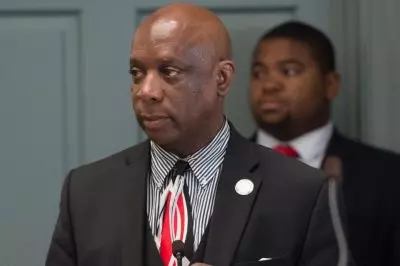 A package of legislations, aiming to allow Delaware residents to place online bets on sports events, received a negative vote in the General Assembly, being labelled as a gambling practice, instead of skill-based activity.
A package of legislations, aiming to allow Delaware residents to place online bets on sports events, received a negative vote in the General Assembly, being labelled as a gambling practice, instead of skill-based activity.
Under Delaware law, online sports betting is illegal. Thus, the residents are not allowed to place bets on sports events, playing for a cash prize. The Delaware Department of Justice even officially put an end to the fantasy sports betting, explaining to big operators that they are not allowed to offer sports betting for a monetary prize.
The fantasy sports industry reacted on the severe measures, explaining that they are offering games of skill, but not of chance. Hence, 2006 Unlawful Internet Gambling Enforcement Act protects the sports betting operators, as it includes certain rights and liberties regarding fantasy sports.
However, a bill introduced by Rep. Charles Potter, D-Wilmington, dwelling on the sports betting issue, managed to succeed in the House Gaming and Parimutuels Committee as recently as 28th June. Potter’s bill aims to regulate the sports betting industry and tax it.
It was explained that the restrictions are not reasonable and even have a bad influence on the state’s economy as these increase the rate of illegal operators. People still place their bets, but the flow of money is directed to the shadowy world.
The legislation of sports betting will weed out the illicit practices and generate money in the local coffers. Thus, the bill passed the House with 28 votes “for” and only 6 “against”. The proposed legislations refer to sports betting as a game of skill and not of chance. Furthermore, the text in the legislation set accurate rules, which the sports betting operators need to comply with.
According to the wording of the bill, all operators should hold a license, in order to have the right to offer sports betting activities within the territory of Delaware. The operators, who include also monetary prizes are subjected to a 15.5% tax on their net gaming revenues along with an annual fee, estimated to be $50,000.
Currently, sports betting operators remain “out of play” until there is no precise decision. In fact, this is not the first try for Potter to pass the package of legislations. It was 2016, when he tried to introduce the bill, but his attempts stroke a snag.
This year seems to have given more hopes as the bill managed to appear in the Delaware General Assembly agenda. Unluckily, it was dismissed as the majority agreed that the element of chance has a bigger share over the skill component, which means that it is a gambling activity.
It was namely Gary Simpson, R-Milford, who raised the question about the nature of the sports betting. He explained that it is unreasonable to refer to sports betting as a skill-based game. Some senators also outlined that the rates are “disciminating” the land-based casino operators, who pay two times more.
The future of the sports betting reforms in Delaware seems to fade away once again. Nevertheless, the bill managed to find its proponents even among the members of the Delaware General Assembly. Thus, it seems that the legalization of sports betting is not a lost cause.